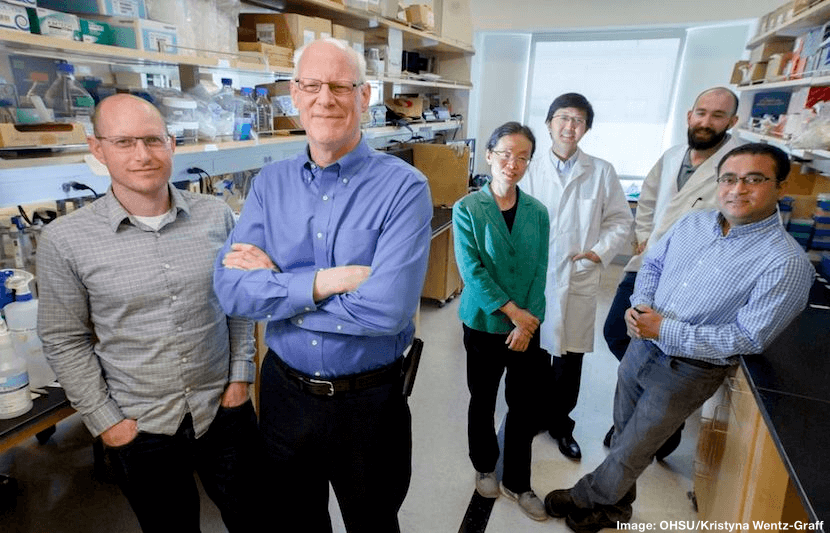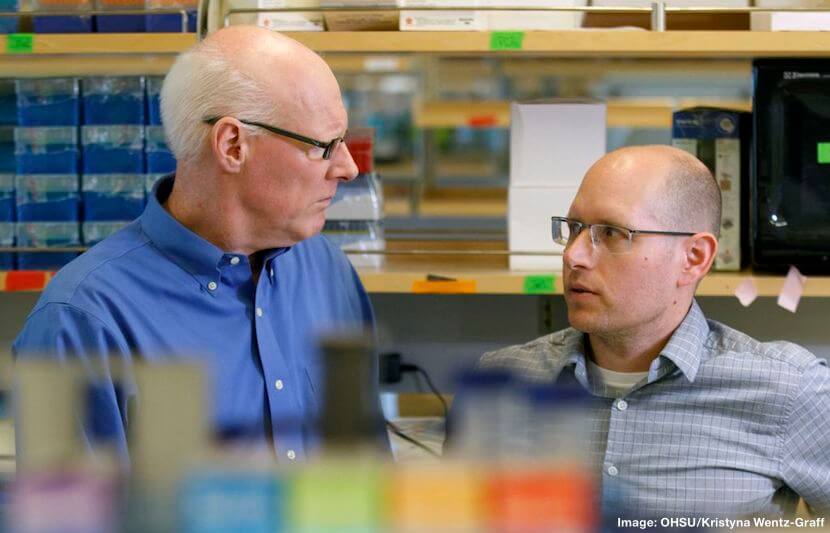Half of the battle when fighting cancer is making sure the infected cells don’t spread throughout the body. It could be the difference between life and death.
Now, for the first time, a team of researchers has discovered a drug compound that can make cancer cells stay put.
“Movement is key: the difference is black and white, night and day,” Raymond Bergan, division chief of hematology and medical oncology and professor of medicine at Oregon Health and Science University (OHSU) and the lead author of the study, said in statement.
“If cancer cells spread throughout your body, they will take your life. We can treat it, but it will take your life,” he continued.
Bergan and Ryan Gordon, a research assistant professor in the OHSU School of Medicine and the co-director of the Bergan lab, have dedicated decades to developing a method to fight the spread of cancer.
The study
The team worked with compound KBU2046, which was developed in the lab of Karl Scheidt, a professor of chemistry and pharmacology at Northwestern University.
The researchers essentially took the compound that effectively freezes cancer cells and refined it until it could do its job without any side effects.
They determined that the key to the new drug was activating the heat shock proteins, also referred to as the cleaners of the cell. The drug attaches itself to the cleaner proteins to stop cell movement.
“We used chemistry to probe biology to give us a perfect drug that would only inhibit the movement of cancer cells and wouldn’t do anything else,” Bergan said in a statement. “That basic change in logic lead us to do everything we did.”
A paper describing the team’s full efforts is published in the journal Nature Communications.
“These efforts include defining the mechanism of action for KBU2046, as well as looking at the therapeutic effect of KBU2046 across numerous in-vitro cancer cell line models, inclusive of prostate, breast, colon, and lung cancer,” said Bergan and Gordon.
Motivation for the study
For years, the researchers have been driven entirely by their empathy towards the pain of those suffering from the disease.
Traditionally, cancer is treated by removing or killing the primary tumor and cells that have already spread. But often, by the time doctors detect the spreading, it is too late.
“Cancer causes death primarily by the spread of cancer cells throughout the body, which then grow to form metastatic tumors that destroy organs,” said Bergan and Gordon.
“We realized that if we developed a drug that stopped the movement of tumor cells, that this would directly address a primary mechanism by which cancer caused death, and yield a substantial therapeutic benefit to many patients.”
Testing in humans
The end goal of this research is to “be able to hand a patient with cancer that has not yet spread and colonized throughout their body a pill and say ‘take this and your cancer will not spread,’ ” said Bergan and Gordon.
But before this happens, the pill must go through a significant amount of testing and FDA trials.
The team estimates it will take two years and $5 million of funding, and the team has struggled with finding donors.
“With respect to clinically developing a drug that stops cancer movement, this has never been done before,” said Bergan and Gordon.
“Drug companies are very reluctant to commit resources to things that have never been done before, and the cost of developing a drug is very high. We have therefore been experiencing limitations in this area, and expect to continue to do so for some time.”
Bergan and Scheidt have created a company, Third Coast Therapeutics, which is geared towards developing a method to stop the spread of cancer.
Currently, the researchers are in the process of performing good laboratory practice or GLP toxicology studies, which are required for a new drug application to the U.S. Food and Drugs Administration to assess its safety or efficacy.
Researchers from Xiamen University in China, the University of Chicago, and the University of Washington also contributed to this study.




